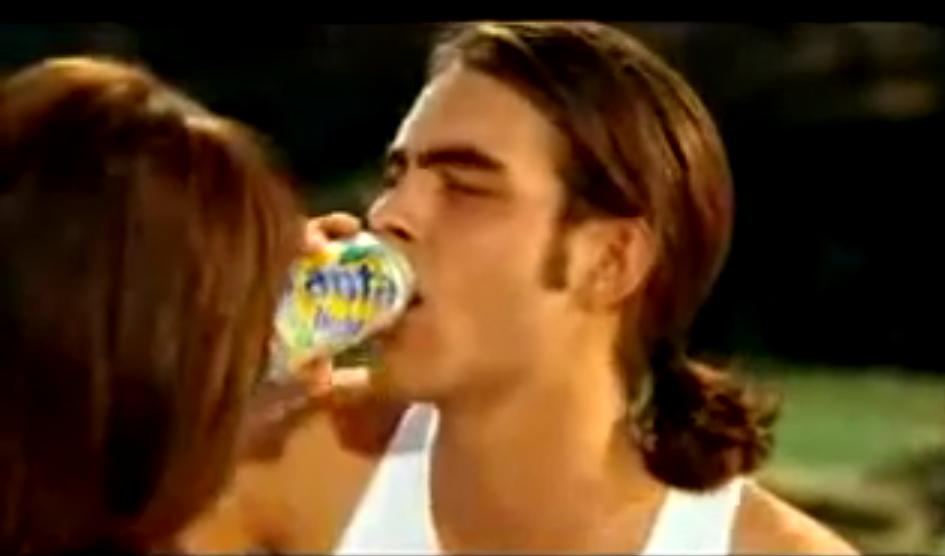
It’s July of 2005: you’re probably wearing a Juicy tracksuit and listening to Gwen Stefani. There’s no such thing as an iPhone yet, and YouTube is still an obscure platform (the first video was posted in April 2005). The television still reigns supreme in the world of visual culture. You’re probably eating what used to be known as a Dime bar, watching the brand new series of Grey’s Anatomy, and halfway through there’s an ad break: Fanta has a new low-sugar drink Fanta Z.
The ad begins conventionally enough—there’s a young hot couple having a picnic next to a scenic coastal view. They’re kissing. They look into each others’ eyes before reaching for a cold Fanta Light. They open their cans, take a swig—and spit it out. It’s strangely erotic.
“The gender and sex stereotypes, over a decade on, are remarkable in of themselves”
It wasn’t this sensuality that soon saw the ad banned until after the 9pm watershed, though. The ad continues to show other people from all walks of life swigging and spitting out their drinks: everyone from a policeman to old women, a shepherd to a business man. (The gender and sex stereotypes, over a decade on, are remarkable in of themselves.) “We all liked the idea of Fanta Light, but… not everyone liked the taste” the voiceover explains as the one-minute ad draws to an end.
So what was it that left such a bad taste in everyone’s mouth this time?
“We need to teach our children that it’s wrong to spit but this advert encourages them”—one parent protested to the Advertising Standards Authority. The complaint was echoed by almost three hundred other parents, equally concerned with their children copying the advert’s poor etiquette. Similarly, in the same year, a KFC ad showing people singing with their mouths full became the most complained about ad in UK history after receiving more than a thousand objections from disgusted parents. Nothing, it seems, gets British parents madder than table manners.
The ASA—the agency responsible for ensuring that advertisements that are misleading, offensive or harmful do not appear in paid-for media—upheld the complaints. “Objections were that the ad condoned spitting, and encouraged bad manners and anti-social behaviour, particularly among young children and young adults. Complainants said some people had copied the ad. Although light-hearted, we fully understood the problem of children copying what they had seen, and ruled that the existing restriction—keeping the ad away from kids’ programming—was not enough. It was amended to a post-9pm restriction,” they stated at the time.
The Fanta Z advertisement was produced by hip London creative agency, Mother. It might not have lasted long at primetime but it was an effective ad nonetheless, carving a new trend for self-parody in product adverts, where brands could have a sense of humour about their mistakes and be more “relatable” to the ever more cynical consumer, no longer to be sold on perfection and promise.
“The Fanta Z ad came at the end of the final era of television advertising as we knew it”
The Fanta Z ad came at the end of the final era of television advertising as we knew it; as YouTube and other online platforms began to take off in the late noughties, ads would become shorter and more targeted. The Coca-Cola company diet drink may no longer be around, but the advert still lives on, with the Wanta Fanta strapline, all part of the colourful Fanta mythology.
What’s remarkable is how in 2005 parents could be so concerned about their children spitting out drinks or singing with their mouths full—how much things have changed, just over a decade on.





